7th India Mobile Congress – A New Era in Global Digital Innovation
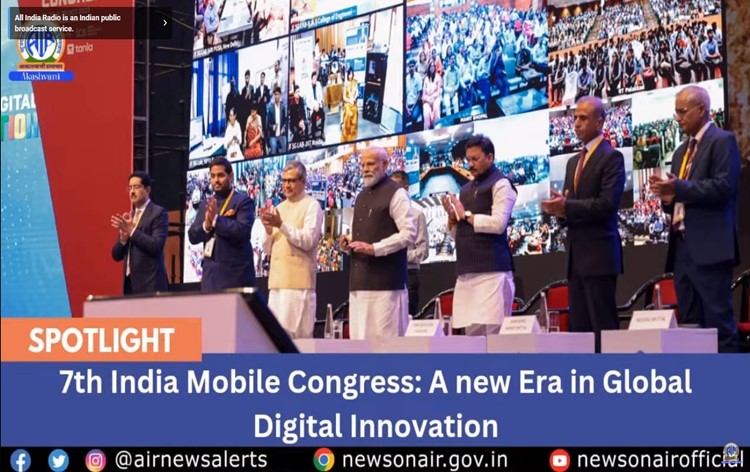
Context
- The 7th edition of India Mobile Congress, IMC 2023, the largest telecom, media and technology forum in Asia, was inaugurated by Prime Minister Narendra Modi on Friday at Bharat Mandapam.
Key Details:
- This year, the theme of IMC is Global Digital Innovation. The three-day event currently underway, highlights India's rapid advancements in telecom and technology and offers a glimpse into the future which showcases innovation, ideas and use cases in 5G, artificial intelligence and other emerging areas.
- In a discussion on Akashvani’s Spotlight program, Ramakrishna P, CEO of India Mobile Congress said that the event explores the potential of 5G technology for various sectors such as education, agriculture, healthcare, transportation and power, and how it can be tailored to India's specific needs and global requirements.
- It also covers topics related to the semiconductor industry, green technology and cyber security.
- The event also plays a crucial role in preparing India's academic and startup ecosystem for the upcoming 6G era, and developing indigenous telecom technology for national security.
- This year, IMC is introducing a startup program- ‘Aspire’. It will foster connections between startups, investors, and established businesses with an aim to catalyze fresh entrepreneurial initiatives and collaborations.
- Ramakrishna P, CEO of IMC said, Telcos are moving from a bare voice and data pipes to more on enabling services for their customers in a very different pattern with solutions, use cases and so on.
- This has changed the way operators have to scale or transform themselves into using various technologies. That is one side of it we are seeing here.
- So a lot of OEMs are discussing it. The second biggest, I think the best of the show was to use cases on the 6G, one by Erricson and one by Nokia.
- Even though it's not a true spirit of 6G use cases, the way it is a perception of how the 6G will develop, what is required to develop or what is the concept behind the whole standards which are being set now.
What is India Mobile Congress (IMC) 2023?
| The theme of IMC 2023 is "Global Digital Innovation," seeks to establish India as a leading technology developer, telecom manufacturer and exporter. |
- India Mobile Congress (IMC) 2023 stands out as a significant annual gathering, spotlighting the cutting-edge progress and innovations within the mobile and digital technology sector.
- This event serves as a pivotal platform, bringing together industry leaders, policymakers, technology enthusiasts, and stakeholders to engage in discussions that shape the future of the digital landscape.
India's Telecom Sector Advancements: Atma Nirbhar Bharat, 5G, and 6G Roadmap
- India has witnessed remarkable strides in its telecom sector, marked by key initiatives such as the Atma Nirbhar Bharat campaign, the widespread adoption of 5G technology, and the strategic roadmap for the upcoming 6G era.
Fostering Innovation through IMC 2023: Collaboration Across Sectors
- The 7th India Mobile Congress (IMC) in 2023 is set to be a catalyst for innovation, bringing together industry leaders, startups, and academia.
- With active participation from at least 100 universities, the event aims to create a collaborative ecosystem for knowledge-sharing and inspire young minds to contribute to India's digital transformation.
Indigenous Technology Development: A Pillar of Atmanirbhar Bharat
- IMC 2023 places a strong emphasis on indigenous technology development, particularly in telecom and semiconductor manufacturing. This aligns with the vision of an Atmanirbhar Bharat, promoting self-reliance and sustainability in critical technological domains.
IMC's Impact on India's Technological Landscape: 5G Rollout and Beyond
- The pivotal role played by IMC in India's technological evolution is evident in the rapid 5G rollout, advancements under the Atmanirbhar Bharat initiative, and the strategic groundwork for 6G technology. IMC continues to be a driving force in shaping India's digital future.
Diversification Beyond Telecom: IMC's Broadened Scope
- IMC has evolved beyond its initial telecom-centric focus, now encompassing diverse industries such as drone technology, power electronics, AI innovations, deep tech, satcom, mobile manufacturing, cybersecurity, and data center innovation.
- This broadened scope fosters collaboration across sectors, leading to advancements with far-reaching impacts on agriculture, education, logistics, transportation, and animal husbandry.
Ensuring Cybersecurity: A Dedicated Focus at IMC 2023
- Recognizing the paramount importance of cybersecurity, IMC 2023 dedicates a segment to address consumer-facing cyber threats.
- By fostering awareness and facilitating discussions on effective cybersecurity measures, the event contributes significantly to enhancing organizational and public safety from cyber frauds.
Virtual Exhibition and Outreach: Making IMC Accessible Nationwide
- In a bid to ensure broader accessibility and participation, IMC 2023 introduces the concept of a virtual exhibition.
- This innovation allows individuals from different parts of the country to engage with the event remotely, aligning with IMC's commitment to reaching diverse audiences and promoting digital innovation on a national scale.
Aspire: Igniting Future Entrepreneurship
- A notable addition to IMC 2023 is "Aspire," a dedicated start-up event designed to fuel entrepreneurship among young innovators in the telecom and digital domains.
- With distinct sections like an Investor zone, pitching zone, workshop zone, and networking zone, Aspire aims to create an unparalleled experience, accelerating the growth of aspiring entrepreneurs in these dynamic sectors.
What is digital transformation?
- Digital transformation is the process of transforming an organization’s business model to enable it to better compete in the digital age.
- It involves the use of digital technologies to create new opportunities, improve customer experience, and increase efficiency.
- It can involve changes to organizational structures, processes, and practices. And it can require the adoption of new technologies, such as cloud computing, mobile computing, and the internet of things.
What are the benefits of digital transformation?
Improved Efficiency:
- Automation: Digital tools automate routine tasks, reducing manual effort and minimizing errors.
- Streamlined Processes: Digital systems enable the optimization of workflows, leading to quicker and more efficient operations.
Enhanced Customer Experience:
- Personalization: Digital technologies allow businesses to tailor their products and services to individual customer preferences.
- Multi-Channel Communication: Organizations can engage with customers through various channels, providing a seamless and consistent experience.
Increased Innovation:
- Data Analytics: Access to data and advanced analytics tools can drive insights, leading to informed decision-making and innovation.
- Collaboration Platforms: Digital transformation fosters collaboration, allowing teams to work together seamlessly, irrespective of geographical locations.
Agility and Adaptability:
- Flexible Operations: Digital systems provide the agility to adapt quickly to changing market conditions and customer demands.
- Scalability: Businesses can scale their operations more easily to accommodate growth.
Cost Savings:
- Operational Costs: Automation and efficiency improvements can result in cost savings over time.
- Reduced Paper Usage: A shift to digital often reduces the need for physical resources, such as paper, leading to cost savings and environmental benefits.
Data Security:
- Secure Transactions: Digital transformation allows for secure online transactions and protects sensitive customer data.
- Compliance: Digital systems can be designed to comply with industry regulations and data protection standards.
Competitive Advantage:
- Innovative Edge: Organizations embracing digital transformation are often more competitive, as they can respond faster to market trends and customer needs.
- Market Differentiation: A digitally transformed business can differentiate itself in the market, attracting tech-savvy customers.
Employee Empowerment:
- Skill Development: Digital transformation often requires upskilling employees, empowering them with new skills and making them more versatile.
- Remote Work: Digital tools facilitate remote work, providing employees with flexibility and work-life balance.
Data-Driven Decision-Making:
- Real-time Insights: Digital systems provide access to real-time data, enabling informed decision-making based on accurate and up-to-date information.
- Predictive Analytics: Organizations can use predictive analytics to anticipate trends and make proactive decisions.
Sustainable Practices:
- Reduced Environmental Impact: Going digital often results in reduced paper usage and energy consumption, contributing to sustainability goals.
How to overcome the challenges of digital transformation?
Leadership and Cultural Change:
- Top-Down Support: Ensure strong leadership commitment and support for digital transformation initiatives.
- Cultural Alignment: Foster a culture of innovation and continuous learning, encouraging employees to embrace change.
Lack of Skills and Talent:
- Training Programs: Invest in training and upskilling programs to equip employees with the necessary digital skills.
- Strategic Hiring: Recruit or partner with individuals who bring expertise in digital technologies.
Legacy Systems Integration:
- Phased Approach: Adopt a phased approach to integrate new digital systems with existing legacy systems.
- APIs and Middleware: Use APIs and middleware solutions to facilitate communication between old and new systems.
Data Security and Privacy Concerns:
- Robust Security Measures: Implement robust cybersecurity measures to protect sensitive data.
- Compliance Standards: Ensure compliance with data protection regulations and industry standards.
Resistance to Change:
- Communication and Training: Communicate the benefits of digital transformation clearly and provide comprehensive training programs to address concerns.
- Incentives: Offer incentives and recognition to employees who actively contribute to the digital transformation journey.
Integration of Emerging Technologies:
- Pilot Projects: Start with small-scale pilot projects to test and integrate emerging technologies before full-scale implementation.
- Collaboration with Tech Partners: Partner with technology experts to navigate the complexities of integrating new and emerging technologies.
Uncertain ROI and Budget Constraints:
- Clear ROI Metrics: Define clear metrics for return on investment (ROI) and continuously monitor and evaluate progress.
- Flexible Budgeting: Adopt an agile approach to budgeting, allowing for adjustments as needed during the transformation process.
Customer Resistance:
- User-Centric Design: Involve end-users in the design and implementation process to address their needs and concerns.
- Effective Communication: Communicate the benefits of digital transformation to customers transparently and address any concerns promptly.
Closing thoughts
- India Mobile Congress 2023 stands as a testament to India's pivotal role in the global digital revolution. Through its focus on global digital innovation, the promotion of indigenous technology, and fostering cross-industry collaboration, IMC emerges as a catalyst for India's technological advancement.
- By actively fostering innovation, expanding its scope beyond traditional boundaries, ensuring robust cybersecurity measures, advocating for global collaboration, and nurturing entrepreneurship through dedicated initiatives, IMC solidifies India's leadership in the technology sector. In doing so, it propels the nation toward a future defined and empowered by continuous digital advancements.
https://newsonair.gov.in/News?title=Discussion-on-7th-India-Mobile-Congress%3A-A-New-Era-in-Global-Digital-Innovation&id=470375
https://www.mckinsey.com/~/media/mckinsey/business%20functions/mckinsey%20digital/our%20insights/digital%20globalization%20the%20new%20era%20of%20global%20flows/mgi-digital-globalization-full-report.ashx
https://www.neweratech.com/us/digital-transformation/
https://coingeek.com/digital-nigeria-2023-day-3-embracing-nigeria-digital-transformation/

World's first Artificial Intelligence Safety Summit
Context
- Union Minister of State for Skill Development & Entrepreneurship and Electronics & IT Rajeev Chandrasekhar addressed the inaugural plenary session of the ‘AI Safety Summit 2023’ at Buckinghamshire in United Kingdom today.
Details
- He emphasised India's commitment to AI with a strong focus on safety, trust, and accountability.
- The Minister said that such international collaborations are extremely important, as we move forward in shaping the future of technology in an era where it is presenting some of the most exciting opportunities ever for mankind.
- The objectives of the two-day Summit are deliberating the risks associated with AI, particularly at the cutting edge of its development, and exploring strategies for their mitigation through globally coordinated efforts.
- The ‘AI Safety Summit 2023’ has assembled representatives from around the world, including governments, prominent AI corporations, civil society organisations, and research experts from the UK, US, Australia, Canada, France, Germany, Indonesia, Ireland, Italy, Kenya, Saudi Arabia, the Netherlands, South Korea, among others.
- European Commission President Ursula von der Leyen, United Nations Secretary-General Antonio Guterres and executives from U.S. artificial intelligence companies such as Anthropic, Google’s DeepMind and OpenAI, and influential computer scientists like Yoshua Bengio, one of the “godfathers” of AI, are also attending.
Applications of Artificial Intelligence:
|
Healthcare
|
- Diagnostic Assistance: AI algorithms can analyze medical images, such as X-rays and MRIs, to aid in the diagnosis of diseases.
- Drug Discovery: AI is used to analyze biological data and predict potential drug candidates, accelerating the drug discovery process.
|
|
Finance
|
- Algorithmic Trading: AI is employed in financial markets for algorithmic trading, making quick decisions based on market conditions.
- Fraud Detection: AI systems can identify patterns indicative of fraudulent activities and enhance security in financial transactions.
|
|
Retail
|
- Recommendation Systems: AI analyzes customer preferences and behavior to provide personalized product recommendations.
- Inventory Management: AI helps optimize inventory levels by predicting demand patterns and reducing excess stock.
|
|
Education
|
- Personalized Learning: AI adapts educational content to individual learning styles, providing personalized learning experiences.
- Grading and Assessment: Automated grading systems powered by AI can assess and provide feedback on student assignments.
|
|
Cybersecurity
|
- Threat Detection: AI analyzes patterns in network traffic to identify and respond to potential cybersecurity threats.
- Anomaly Detection: AI systems detect unusual behavior or activities that may indicate a security breach.
|
https://newsonair.gov.in/News?title=World%26%2339%3bs-first-Artificial-Intelligence-Safety-Summit-begins-at-Buckingham-in-UK&id=470521
.jpg)
India and UAE Strengthen Educational Ties
Context
- In Abu Dhabi, India's Union Education and Skill Development & Entrepreneurship Minister Dharmendra Pradhan and Minister of Education for the United Arab Emirates, Dr. Ahmad Al Falasi, today, signed a comprehensive Memorandum of Understanding (MoU) which aims to fortify existing educational cooperation between the two countries.
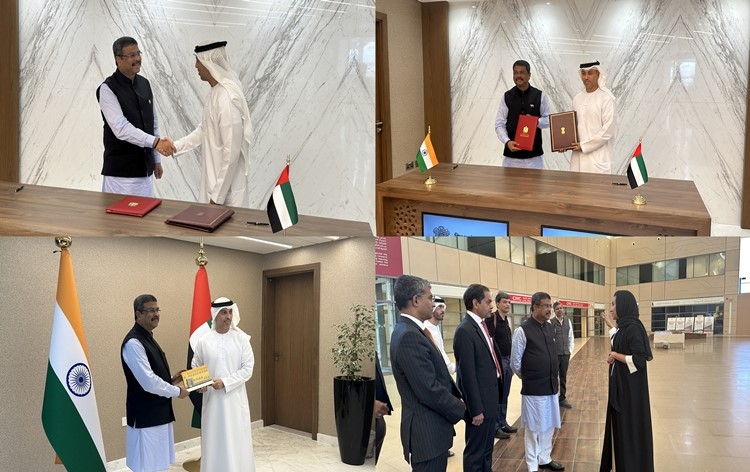
Disclaimer: Copyright infringement not intended
Details:
- The primary objective of this MoU is to facilitate student and faculty mobility, thus enhancing collaboration in the Education sector.
- During their discussions, Mr. Pradhan stressed the importance of uniting India's status as a global talent hotspot with the UAE's position as a global economic hotspot. He advocated for the establishment of a knowledge bridge that would further strengthen the civilisational connection between the two nations.
Significance:
- The MoU signed during the meeting represents a pivotal step in strengthening educational cooperation between India and the UAE.
- Furthermore, the MoU aims to promote the exchange of critical information in various domains.
- The MoU also paves the way for cooperation in the field of Capacity Development within Technical and Vocational Education and Training (TVET) teaching staff.
- To ensure the seamless implementation of this transformative agreement, the MoU will lead to the creation of a Joint Working Group (JWG) chaired alternately by a representative from the Ministry of Education in India and the UAE.
- This significant development signifies the commitment of both India and the UAE to foster a thriving collaborative spirit, facilitating the exchange of knowledge, experiences, and resources to elevate educational standards and opportunities for their respective citizens.
https://newsonair.gov.in/News?title=India-and-UAE-Strengthen-Educational-Ties-with-Landmark-MoU&id=470509
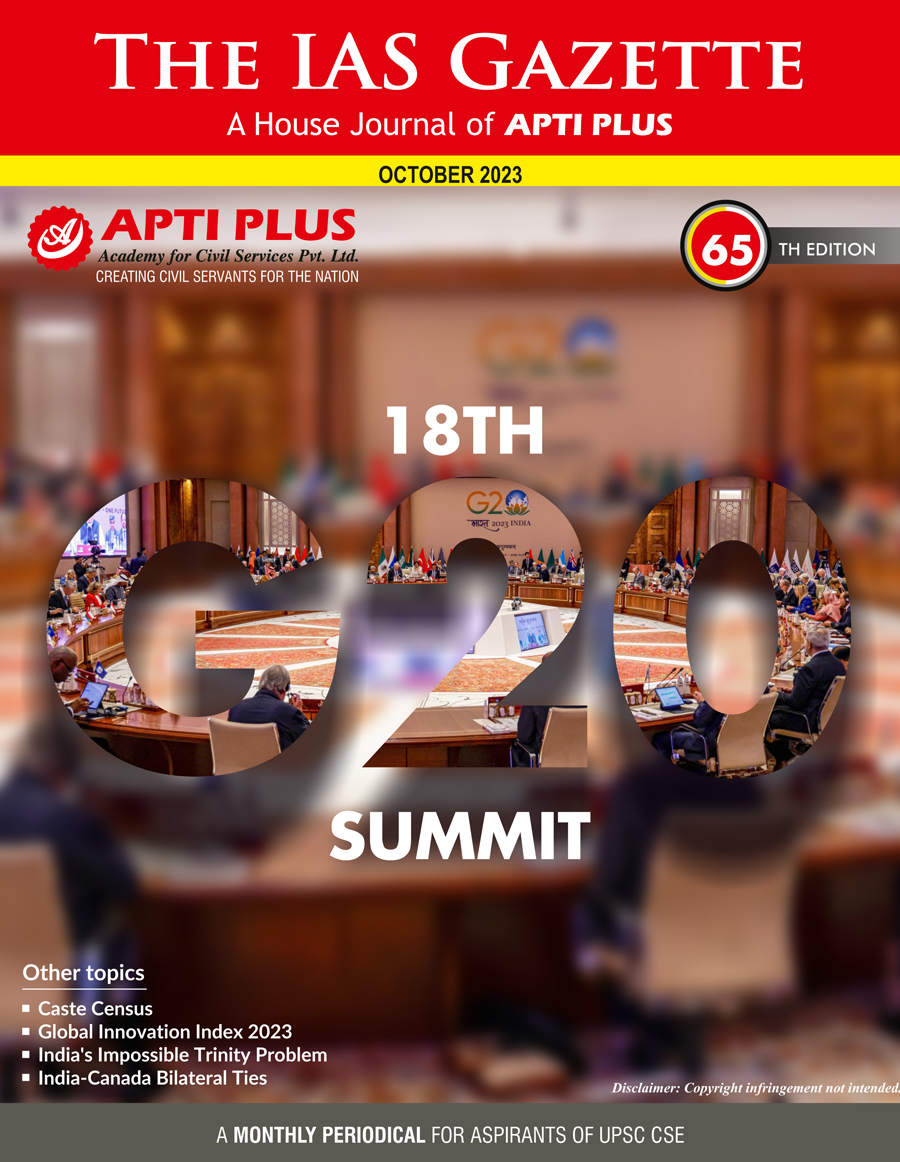
GeM registers service growth of 1.5 lakh crore rupees
Context
- The Government e-marketplace (GeM) has registered a service growth of 47 percent or 1.5 lakh crore rupees in the current financial year 2023-24 till now.
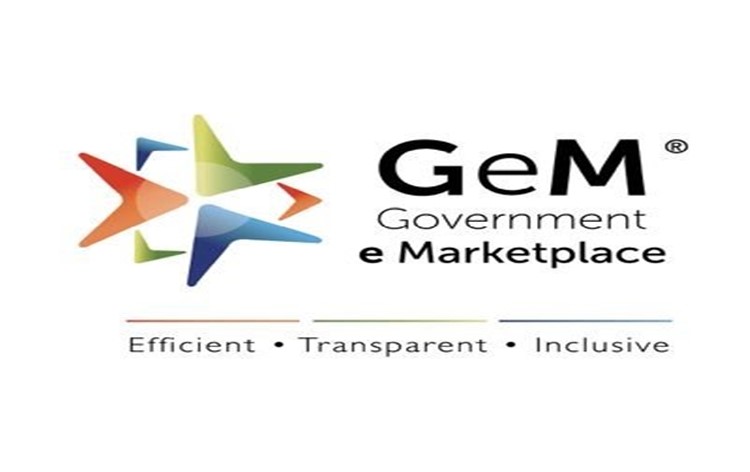
Details
- It has provided services to multiple Central Public Sector Enterprises (CPSEs), Union Ministries, and State governments.
- Coal India Limited has emerged as the biggest buyer with orders worth more than 24 thousand crore rupees.
- GeM said it has expanded its services, ranging from the labour force to vehicles. It added that it is trying for companies to deal directly with buyers by removing any agents or middlemen to help in cost-saving, most notably in Insurance.
- GeM said that to help small buyers who cannot afford expensive machinery, it has allowed leasing, especially with Medical equipment. It added that a dedicated category has been created for State Buyers to aid them in the implementation of government schemes through multiple services.
About the Government e-marketplace (GeM):
|
About
|
- The Government e-Marketplace, commonly known as GeM, is an online platform introduced by the Government of India to facilitate procurement of goods and services by various government departments, ministries, and public sector undertakings.
|
|
Centralized Procurement Platform
|
- GeM serves as a centralized platform for government procurement, streamlining the purchasing process and promoting efficiency.
|
|
Inclusion of Sellers
|
- GeM includes a diverse range of sellers, including manufacturers, wholesalers, retailers, and service providers, creating a competitive marketplace.
|
|
Categories of Procurement
|
- The platform covers a wide array of product categories, ranging from common-use goods to specialized items and services.
|
|
Transparency and Accountability
|
- GeM promotes transparency in the procurement process, allowing buyers to view product details, specifications, and prices before making a purchase.
|
|
Ease of Use
|
- The platform is designed to be user-friendly, making it accessible to various government entities, including those at the central, state, and local levels.
|
|
Paperless and Cashless Transactions
|
- GeM encourages paperless and cashless transactions, contributing to the government's efforts to promote a digital economy.
|
https://newsonair.gov.in/News?title=GeM-registers-service-growth-of-1.5-lakh-crore-rupees-in-te-current-financial-year-2023-24-till-now&id=470504
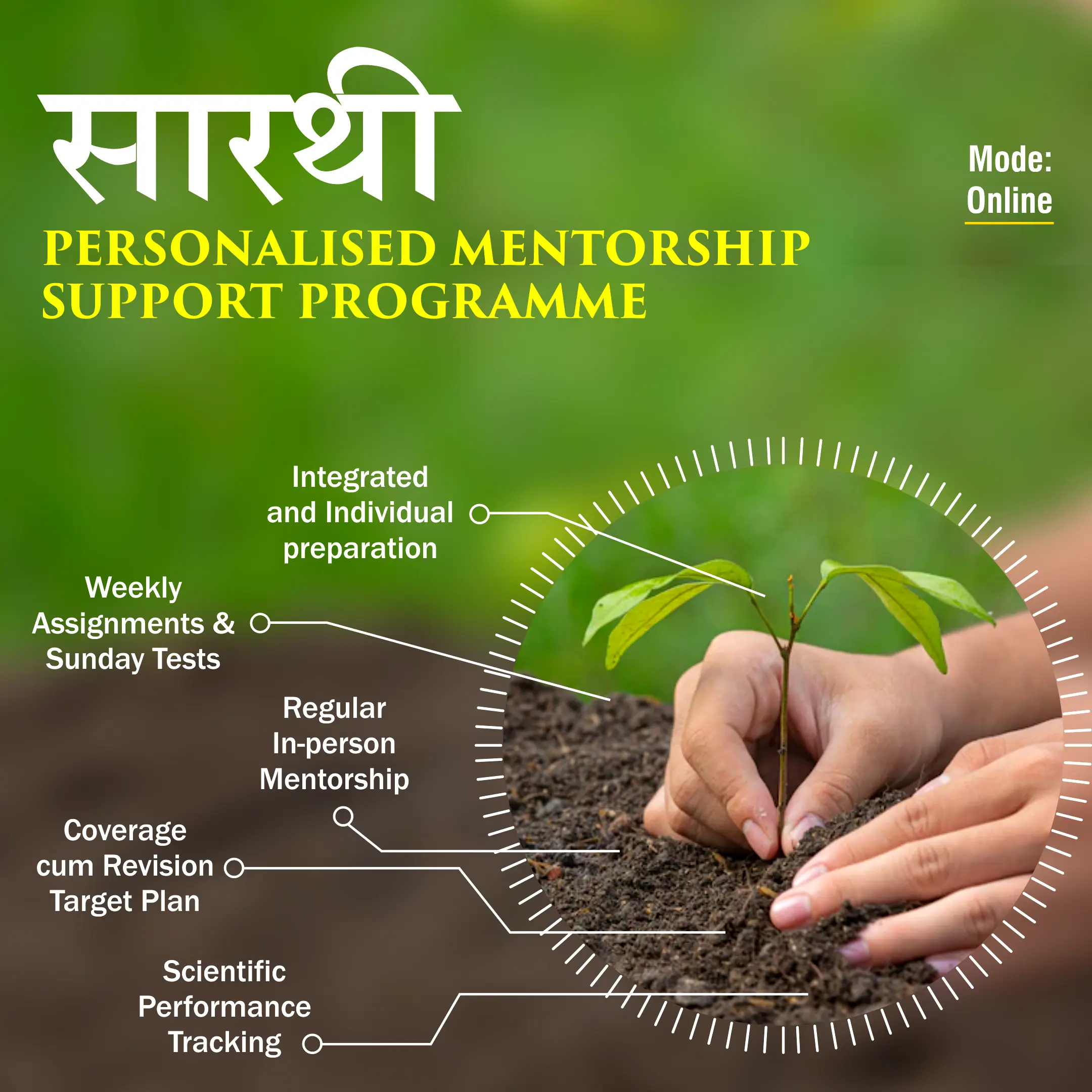
UN Assistance Mission in Somalia
Context
- The UN Security Council yesterday adopted a resolution to renew the mandate of the UN Assistance Mission in Somalia (UNSOM) for a year, till 31st October 2024.
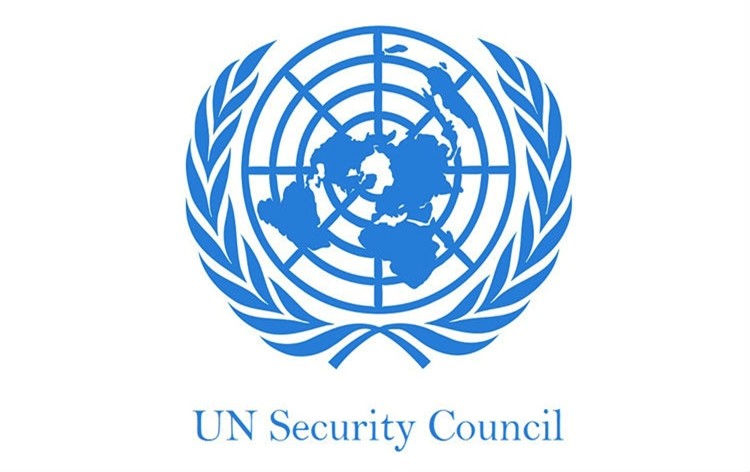
Details:
- The resolution was adopted unanimously by the 15-member council.
- It has requested UNSOM to continue to maintain and strengthen its presence across Somalia, in consultation with the federal government of Somalia and Somalia's federal member states.
- It also requests UNSOM to continue to strengthen its cooperation with Somalia and the African Union.
- It encourages UNSOM to continue to coordinate UN efforts and maximize joint approaches and joint programming in relevant areas to support state-building and peace-building in Somalia.
About the UN Security Council:
|
About
|
- The United Nations Security Council (UNSC) is one of the six principal organs of the United Nations and is responsible for maintaining international peace and security.
|
|
Membership
|
- The UNSC consists of 15 member states, with five permanent members known as the P5: China, France, Russia, the United Kingdom, and the United States. These P5 members have veto power, allowing them to block substantive resolutions.
|
|
Non-Permanent Members
|
- The remaining ten seats are allocated to non-permanent members, elected by the General Assembly for two-year terms. The non-permanent members do not possess veto power.
|
|
Functions
|
- The primary function of the UNSC is to maintain international peace and security. It does so through the establishment of peacekeeping missions, the imposition of sanctions, and the authorization of the use of force when necessary.
|
|
Resolutions
|
- Resolutions passed by the UNSC are binding on all UN member states. The approval of a resolution requires the affirmative votes of at least nine members, including the concurring votes of all P5 members without a veto.
|
|
Meetings and Decision-Making
|
- The UNSC meets regularly to discuss global security issues. Each member has one vote, and decisions on substantive matters require the affirmative votes of at least nine members.
|
https://newsonair.gov.in/News?title=UN-Security-Council-adopts-resolution-to-renew-mandate-of-UN-Assistance-Mission-in-Somalia-for-year&id=470484







